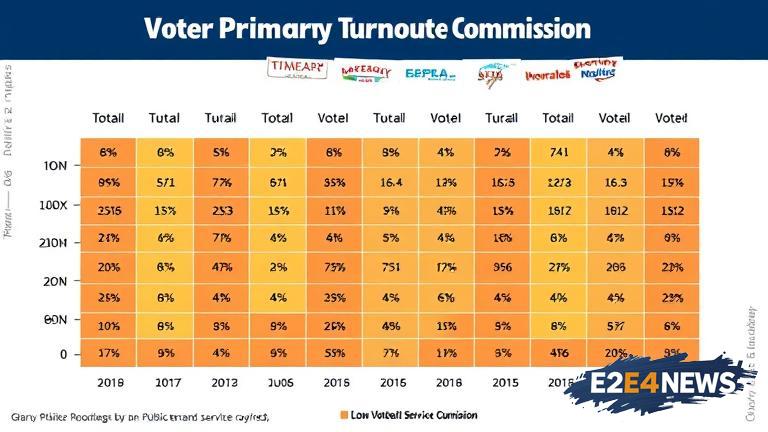The primary runoff election for the Georgia Public Service Commission took place on July 10, 2025, with a disappointingly low voter turnout. Despite the importance of the commission in regulating the state’s energy and utility industries, many eligible voters failed to cast their ballots. The low turnout has raised concerns among election officials and political analysts, who point to a lack of awareness and engagement among voters as a major factor. The Public Service Commission plays a crucial role in shaping the state’s energy policies, including the regulation of electricity and gas rates, as well as the oversight of renewable energy projects. The commission’s decisions have a direct impact on the daily lives of Georgians, from the cost of electricity to the availability of clean energy sources. However, the election failed to generate significant interest among voters, with many precincts reporting turnout rates of less than 10%. The low turnout is particularly concerning given the significance of the election, which will determine the composition of the commission for the next several years. The commission’s members will play a key role in shaping the state’s energy future, including the development of renewable energy sources and the regulation of utility companies. The election also highlighted the need for greater voter education and outreach efforts, particularly in rural and underserved communities where turnout was particularly low. Election officials and advocacy groups are calling for increased funding and support for voter engagement initiatives, including voter registration drives and get-out-the-vote campaigns. The low turnout also raises questions about the effectiveness of the state’s election system, including the use of runoff elections and the timing of the primary election. Some analysts argue that the state’s election system is in need of reform, including the adoption of ranked-choice voting and the consolidation of election dates. The outcome of the election will have significant implications for the state’s energy and utility industries, as well as for consumers and the environment. The newly elected members of the Public Service Commission will face significant challenges, including the need to balance the interests of different stakeholders and to make decisions that promote the public interest. As the state continues to grow and develop, the importance of the Public Service Commission will only continue to increase, making it essential that voters are engaged and informed about the election process. The low turnout in the primary runoff election serves as a reminder of the need for greater voter engagement and participation in the democratic process. By working to increase voter awareness and turnout, Georgians can help ensure that their voices are heard and that the state’s energy and utility policies reflect the needs and interests of all citizens.
